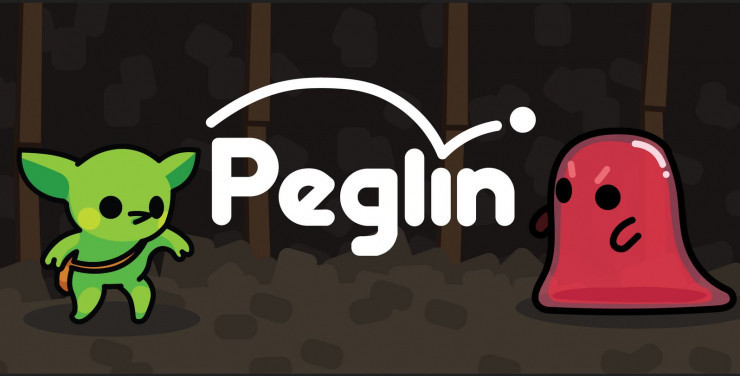‘Peglin’: Rogue-Like with Japanese gaming machines

Video games and gambling are actually two different things. Sometimes, however, the two worlds are mixed together. This is the case with ‘Peglin’, a rogue-like with key elements from classic Japanese slot machines. The game from Red Nexus was released back in 2022, but was only released a few weeks ago for the Nintendo Switch, which is primarily aimed at young target groups. Could there be problems here due to the gambling nature of the game?
The digital gaming world is known for its love of experimentation - new genres and innovative mechanics are constantly revitalising the field. Things get particularly interesting when traditional boundaries become blurred, as in the case of ‘Peglin’, which combines video game and gambling elements.
The fans like it, as can be seen from the many positive reviews and high download figures on Steam and in the app stores. On Google Play, ‘Peglin’ has an impressive 500,000+ hits. While some people celebrate the creative potential, others might question the possible problematic influence of gambling on the target groups.
Recently, ‘Peglin’ was released for the Nintendo Switch, a platform with many younger users - and it is precisely these people who are considered particularly ‘vulnerable’ when it comes to gambling. It is not unlikely that critics will sooner or later complain that the aesthetics and mechanics of the game could inadvertently introduce this vulnerable group to the world of gambling. This was also the case with Balatro and its poker elements, for example. A sensitive topic that is attracting increasing attention.
What is ‘Peglin’ and how does it work?
In ‘Peglin’, the player takes on the role of a brave goblin who wanders through dense forests and abandoned fortresses to take on a colourful array of opponents - including slippery slime creatures, living mushrooms and powerful minotaurs.
The game's special combat mechanics combine the rogue-like principle with the pachinko system familiar from Japanese arcades. This combination sets ‘Peglin’ apart from classic rogue-likes and creates a unique gameplay that requires skill and strategy as well as luck.
- Instead of traditional attacks, the player shoots orbs onto a vertically arranged field, similar to a pachinko machine. The orbs fall through a variety of obstacles, which are destroyed on each impact, and cause damage to the opponent on impact, which ultimately depends on the number of objects hit.
- The mechanics require not only a certain amount of timing, but also strategic thinking, as the player must carefully plan the selection and direction of the orbs in each round in order to maximise the effect.
- With each failed attempt, the game starts all over again - a classic feature of the rogue-like genre. In between attempts, players collect experience and resources that they can use to unlock special upgrades for the goblin and its orbs. The upgrades vary greatly and add tactical depth to the game as abilities are customised to break through more obstacles or deal area damage, for example.
The mixture of the repeatable rogue-like rounds and the randomised pachinko element has attracted a large fan base and made ‘Peglin’ an exciting experiment that explores the boundary between skill and luck in its own way.
Incidentally, the frequently practised camouflaged games of chance in the MMORPG Old School RuneScape will be more strictly prohibited in future in order to preserve the integrity of the game and at the same time increase player safety.
Could ‘Peglin’ run into problems in Germany due to the gambling elements?
First things first: so far, there have been no public discussions in Germany about whether ‘Peglin’ could raise regulatory concerns due to its gambling elements.
Even if the game integrates elements of Japanese slot machines, it remains within the scope of a typical video game from a legal perspective. However, the authorities and researchers consider a comprehensive examination of such titles for their risk of addiction to be increasingly important. Especially since rogue-likes such as ‘Peglin’ often rely on shorter, repetitive game phases, which can certainly favour a potential frustration and addiction factor.
- The desire to ‘try again’ is a common thread running through the genre and keeps players hooked - a characteristic that is appreciated in rogue-likes, but could also lead to intensive, potentially problematic gaming behaviour.
- The pachinko aspect gives ‘Peglin’ an additional unpredictability that is rare in games of this type. As hits and damage are partly dependent on luck, a certain element of chance is inextricably linked to the title - similar to a slot machine.
- Although the gameplay allows for continuous improvement by learning strategies, the risk of failing a particularly good round remains. This is what makes it so fascinating, but also brings with it the potential for addiction. Regular failure and the chance to win valuable upgrades to be more successful in future rounds can make game sessions last a particularly long time.
Critics could interpret the latter point in particular as promoting similar patterns of gambling. In Germany, the question of the influence of such elements is often considered against the background of youth protection regulations and the State Treaty on Gambling (GlüStV). Pachinko-like mechanics and other chance-based components could be categorised as ‘simulated gambling’ under certain circumstances, which would potentially limit access for younger target groups.
Another issue that is increasingly coming into focus is gambling advertising at major gaming tournaments such as ‘The International’.
Conclusion
Image source: Screenshot von https://rednexus.games/

0 Comments to: ‘Peglin’: Rogue-Like with Japanese gaming machines
Our community thrives on your feedback - so let us know what you think!
Would you like to write comments on GambleJoe yourself? Then just create a GambleJoe User Account.